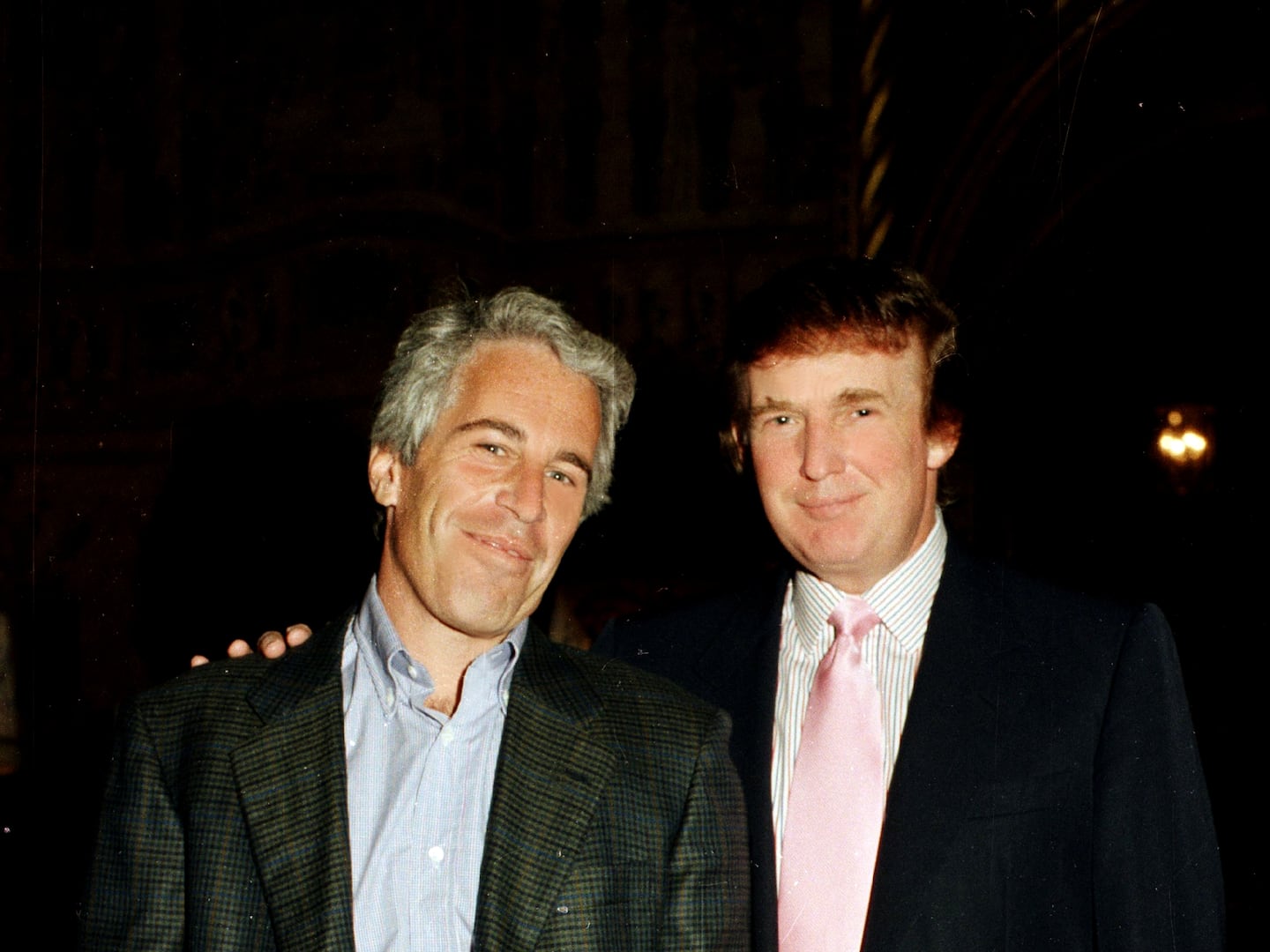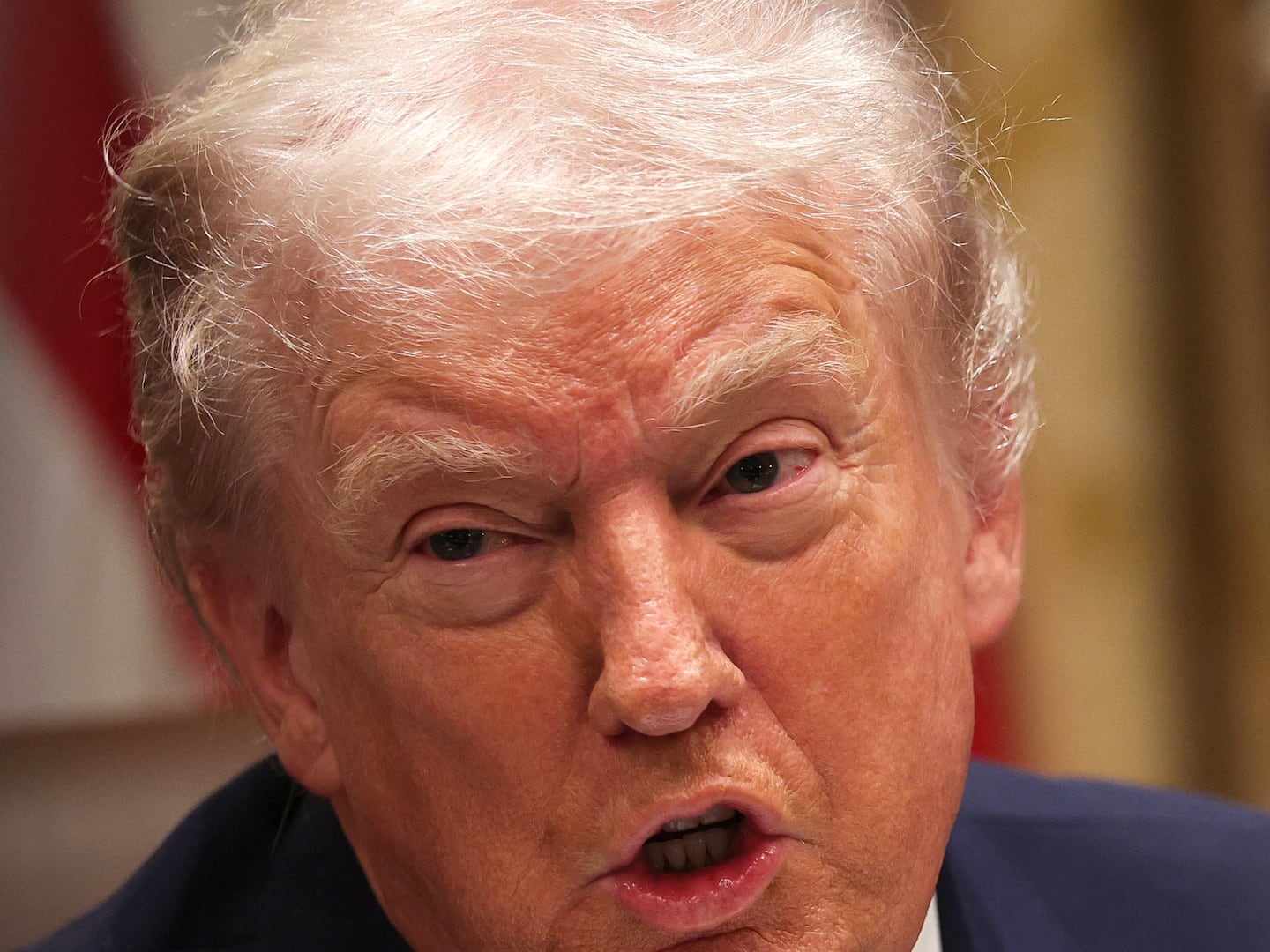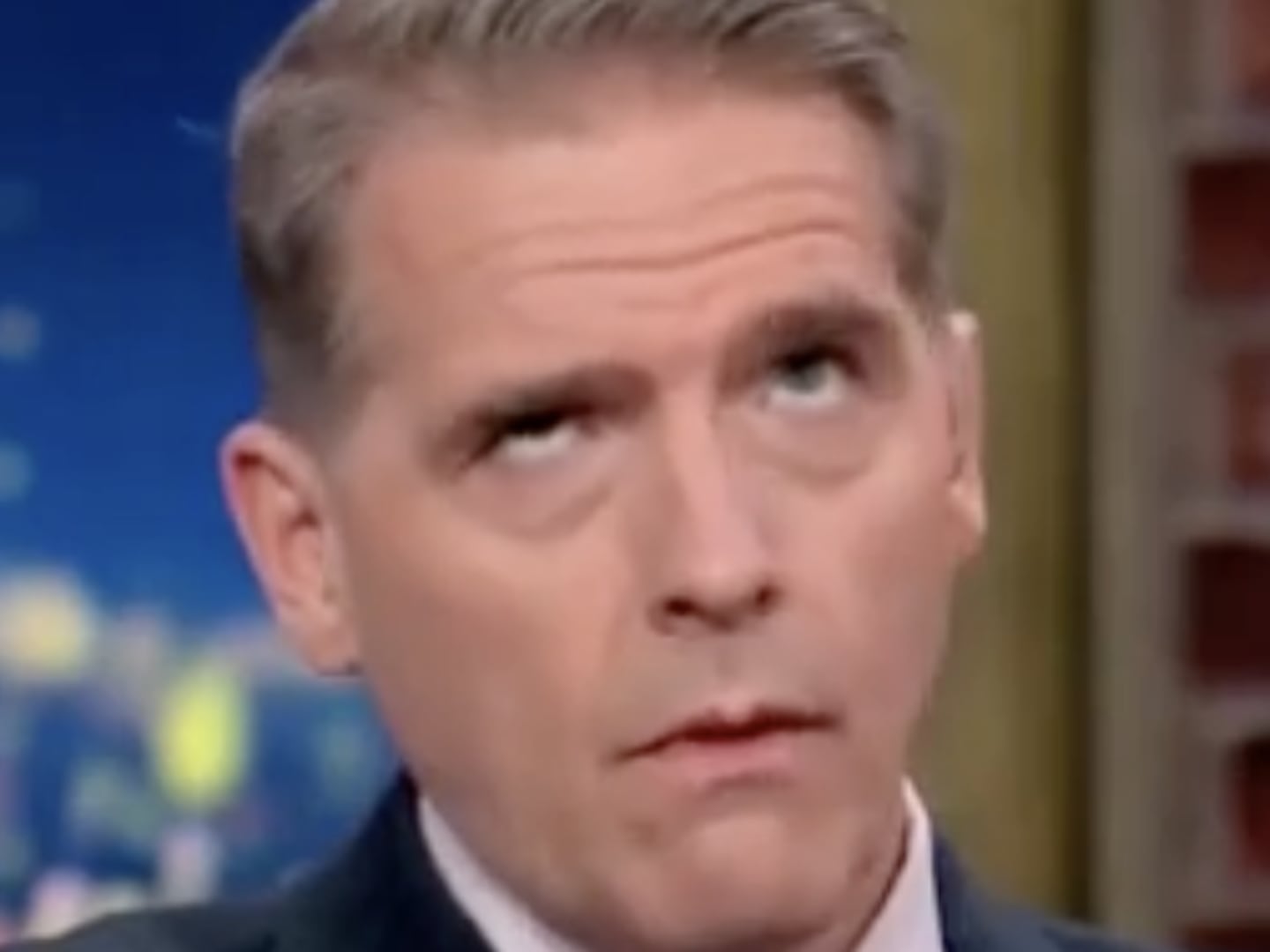Brian Roberts—the chairman and chief executive of the $142 billion Comcast cable TV, broadband, and multimedia empire, No. 31 on the Fortune 500 list—is improbably cast as a villain.
Yet by some accounts, albeit forcefully disputed by Comcast, he’s perhaps the nation’s most effective enemy of net neutrality—namely free, unfettered and equal access for all to content on the internet.
Not that he makes a big show of it.
“He’s an amazingly self-effacing guy,” said former Pennsylvania Gov. Ed Rendell, who recently ran into Roberts on the Acela platform at Philadelphia’s 30th Street Station, and was surprised when the billionaire tech and television mogul walked past first class to take his seat in a crowded coach car. “If you sat next to him, you wouldn’t know who he was and he probably wouldn’t tell you, unless you asked.”
Longtime family friend Rebecca Rimel, president of the $5 billion Pew Charitable Trusts, told The Daily Beast: “I don’t think he confuses success with ‘splash.’ Brian wants to be very successful at anything he does, including business, but ‘splash’ is asking for self-adoration. ‘It’s all about me.’ ‘I want the attention.’ That’s just completely antithetical to how he and his family ever approached their lives and their work.”
The 58-year-old Roberts, reed-thin and soft-spoken, exudes a prosaic, almost colorless aspect that’s at odds with his public identity as an occasionally shark-like tycoon: In 2004, he unsuccessfully attempted a $41 billion hostile takeover of the Walt Disney Co., gobbled up NBCUniversal in a $30 billion deal nearly a decade ago, famously failed in his $45.2 billion bid to acquire Time Warner Cable in 2015, and these days is reportedly readying a $60 billion all-cash offer to devour the entertainment assets of Rupert Murdoch’s 21st Century Fox; he had already separately bid $31 billion to acquire Fox’s 39 percent stake along with the remaining 61 percent of Europe’s profitable Sky Television.
The press-shy Roberts’s most recent corporate exploits—even if they ultimately come to naught—have the advantage of messing with the heads, and subverting the best-laid plans, of two of his more flamboyant adversaries: the piratical Murdoch, who had already arranged to sell to Disney, but for at least $8 billion less than Comcast is prepared to offer, and Disney Chairman and Chief Executive (and possible 2020 presidential candidate) Bob Iger, who was among the Disney honchos in 2004 who helped thwart Comcast’s takeover challenge.
“Brian has a very long-term, disciplined view and a clear understanding of the space he’s in, and where he’d like Comcast to go in it,” said Comcast Vice Chairman Neil Smit, a former Navy SEAL who until recently ran the day-to-day cable and broadband business. “He has a long-term vision and a long-term strategy, and he’s always willing to take a well-informed risk.”
The company, which includes theme parks, Universal Pictures, DreamWorks Animation, and other properties, has come a very long way since Brian’s late father, Ralph—a former purveyor of golf clubs, belts, suspenders, Muzak, and men’s cologne—invested $500,000 with two friends in a 1,200-subscriber cable-television system in Tupelo, Mississippi. Today, Brian, whom Ralph installed as the 30-year-old president in 1990 after he worked his way up through the ranks, controls 33 percent of the voting stock.
“Like all companies, it’s kind of a mixed bag,” said Comcast critic Harold Feld, senior vice president of the digital-freedom advocacy group Public Knowledge. “They’re not cartoonishly evil, but their job is to make money. In some areas, where they’re competing with other companies to potentially move into wireless [as Comcast has recently begun to do, with bargain fees for cellphone service], that could be good for consumers. But in other areas, where they’re trying to leverage their local dominance in cable and broadband—particularly to combat the revenues they’re losing from cord-cutting—that’s going to be very bad for consumers.”
According to critics, notably cable providers with less clout in rural areas and small towns, Comcast—which owns the NBC broadcast network and related sports channels, MSNBC, Bravo, E!, and other cable channels—has tried to leverage its control of content into higher financial returns by squeezing the smaller cable operators.
Meanwhile, Comcast has made substantial investments in high-tech equipment, notably its well-regarded Xfinity platform, but the company’s reputation for poor customer service has barely improved, according to the American Customer Satisfaction Index, since various horror stories surfaced in the national press during the abortive merger with Time Warner Cable.
In an incident last year, Mike Huckabee launched an anti-Comcast tweet storm and extracted an apology from the company after a technician missed a scheduled appointment at his home.
The former Arkansas governor compared the cable behemoth unfavorably to North Korea and a root canal, and even suggested he’d rather have Barack Obama back as president than be forced to deal with Comcast.
“Mafia better service than @ comcast,” Huckabee tweeted at one point. “Sure they shoot you, but it’s over with and they don’t charge you for the bullet.”
At one time the nation’s largest cable provider but now second to AT&T, Comcast serves around 22.3 million cable video customers in 39 states and the District of Columbia (a declining number as cord-cutting accelerates) and around 26.2 million broadband customers (a rapidly growing market, as consumers ditch cable TV for streaming video).
“I would say Brian Roberts is really smart in a number of ways,” Harold Feld said, “one of which, I believe, is he’s probably the greatest genius with regard to cartels, and how cartels work, since John D. Rockefeller and the Standard Oil Trust.”
Roberts, a former chairman of the National Cable and Telecommunications Association, the industry lobbying group, “has perfected how to work with the other cable providers and the programmers and be at the center of everything,” Feld told The Daily Beast. “They are not obviously a monopoly but they are large enough in every single major market in which they are present to be able to significantly influence and control what goes on.”
These days, even before his latest potential acquisitions, Roberts runs a nearly 160,000-employee, $84.5 billion revenue, publicly traded company that is widely perceived (despite its earnest claims to the contrary) to be participating in net neutrality’s quiet demise.
Today has been designated “Red Alert Day” for advocacy groups and citizens to protest the Donald Trump Federal Communication Commission’s repeal last December of Obama-era rules designed to safeguard free and unfettered access to content on the internet.
It’s also the day that Massachusetts Democratic Sen. Ed Markey plans to employ a two-decade-old legislative mechanism, the Congressional Review Act—previously used by Republicans seeking to undo bothersome regulations—to file a discharge petition to demand a vote on reversing the FCC’s December 2017 ruling.
A working majority of all 49 Senate Democrats plus centrist Maine Republican Susan Collins have signed on to the effort to codify in law the Obama FCC’s net-neutrality rules—with a floor vote to be scheduled by June 12—and thus prevent Comcast and other internet service providers from blocking or slowing down—aka “throttling”—data transfers for web users who don’t pay a premium for the privilege, otherwise known as “pay prioritization.” (Arizona Republican Sen. John McCain is at home in Sedona recovering from treatments for brain cancer and other health problems and not expected to be in Washington to vote against the measure.)
“Probably a lot of Comcast bashing at the press conference,” a Markey aide emailed The Daily Beast, predicting a camera-ready extravaganza Wednesday morning in the Senate’s Radio and TV Gallery.
Most political observers characterize Markey’s maneuver—along with a parallel effort in the House being helmed by Democratic Rep. Mike Doyle, of Comcast’s home state of Pennsylvania—as a conspicuous display of support for Barack Obama’s net-neutrality policy (backed by 83 percent of Americans, including 75 percent of registered Republicans) while driving a wedge between GOP office-holders and the voters as the 2018 midterms loom nigh.
Indeed, net neutrality is so widely appreciated by ordinary citizens that ABC late-night talk show host Jimmy Kimmel, the day after the FCC formally revoked the Obama policy, devoted his monologue to the federal agency’s “absolutely despicable” action and called the Trump-appointed FCC chairman, Ajit Pai, a “jackhole.”
“This issue comes up everywhere with young people who are digital natives and grew up with a free and open internet,” said Rep. Eric Swalwell, chairman of the 28-member Future Forum that focuses on issues important to millennials—and one of 160 Democratic cosponsors of Doyle’s legislation, which has yet to attract a single Republican. “Politically, they are not going to look kindly on anyone who would believe otherwise.”
Swalwell, whose Northern California district is served by Comcast, added: “They’re a very stubbornly independent generation. They’re not solidly in one camp or the other. The challenge is to make sure that our candidates communicate to them that they are for net neutrality, and that this message is received by young people, so they know who to support and where to go.”
The reality, of course, is that even if the Senate approves Markey’s CRA—and, in an even less likely scenario, the Republican-majority House allows a vote and passes a companion bill—it would be a shock if President Trump signed it.
Yet shocks are Trump’s M.O.
“I’ve given up predicting where the president will be on anything,” said legislative counsel Ernesto Falcon of the Electronic Frontier Foundation, which has toiled, with limited success, to cap the market and political power of Comcast, Verizon, AT&T, and other massive ISPs. “The smart bet is we don’t know where President Trump would be on this issue.”
Falcon, a former congressional aide, added: “It is good politics for the Democrats, because the public is overwhelmingly on one side of this issue. It’s bad politics for the Republicans to be against it. But in terms of the process and where it ends, it will come down to the people. It will come down to how many Americans really voice their opinion to Congress, because no issue can be denied if an overwhelming number of people are making phone calls or going to town halls.”
Comcast, however, claims to believe strongly in the principle of net neutrality, even as it resists government enforcement of the practicalities. Comcast and its fellow cable and broadband providers bitterly opposed the 2015 FCC order that treated them as common carriers—that is, the equivalent of public utilities that could be regulated under Title II of the 1934 Communications Act.
In a blog post titled “Don’t Be Fooled by the Comcast PR Machine: It Has Always Opposed Internet Freedom,” Falcon chronicled the company’s history of opposing aspects of net neutrality via litigation and congressional testimony.
Oddly, the Obama-era net-neutrality rule remains in effect until the FCC’s reversal makes its way through the federal bureaucracy.
“This is not the end of net neutrality,” Comcast Senior Executive Vice President David L. Cohen blogged last December, the day before the commission’s controversial vote. “Despite repeated distortions and biased information, as well as misguided, inaccurate attacks from detractors, our Internet service is not going to change. Comcast customers will continue to enjoy all of the benefits of an open Internet today, tomorrow, and in the future. Period.”
Cohen, a Democrat and former Ed Rendell aide who oversees Comcast’s nearly $20 million lobbying juggernaut, continued soothingly: “Consumers will remain fully protected. We have repeatedly stated, and reiterate today, that we do not and will not block, throttle, or discriminate against lawful content. These fundamental tenets of net neutrality are also key components of our core network and business practices—they govern how we run our Internet business.”
He added: “Is Comcast creating Internet fast lanes? No, we’ve said consistently we’ve not entered into paid prioritization agreements and have no plans to do so.”
Of course not: As long as the old rule remains on the books and before the rollback takes effect, paid prioritization is illegal. However, Ars Technica reporter Jon Brodkin, probably Comcast’s least favorite journalist, last year pointed out subtle changes in the company’s official promises concerning net neutrality, notably the deletion of a longstanding pledge: “Comcast doesn’t prioritize internet traffic or create paid fast lanes.”
Brodkin suggested the deletion opens the door to Comcast implementing paid prioritization once it’s legal, adding: “having no current plans to do something and promising to not do it at all are two different things.”
In a statement provided to The Daily Beast, the company pushed back: “Comcast hasn’t entered into any paid prioritization agreements. Period. And we have no plans to do so. No matter what the skeptics say, you can’t accurately convert an unequivocal statement that Comcast has no plans to enter into any paid prioritization arrangement into plans for paid prioritization. As we’ve made clear consistently, we will not block, throttle, or discriminate against lawful content.”
Brodkin has also documented how Comcast is attempting to slow down cord-cutting by offering enhanced broadband speeds at no additional charge, in select markets, but only to customers who agree to retain their video service.
Comcast, however, begs to differ: “This year alone, we have boosted speeds for internet-only customers and customers in packages in more than two dozen different states across the country which added at least 50 Mbps [megabits per second] more speed for these customers… We continue to deliver the fastest speeds to the most homes in the country—in fact, 75 percent of our customers now have speeds of 100 Mbps or higher and Gigabit service is now available to more than 90 percent of our service area, including internet-only customers.”
Washington public-interest advocate David Goodfriend, meanwhile, said Comcast’s assurances of fealty to net neutrality should be greeted with appropriate skepticism: “They all say they support net neutrality, but when it comes to actually putting it into law, they balk. They’re trying to have it both ways. ‘We know consumers want this, so we’re going to say we want it too.’”
In the meantime, Comcast and Brian Roberts, along with the rest of the industry, await U.S. District Judge Richard Leon’s verdict, set for June 12, in the Washington, D.C., trial pitting the Trump Justice Department against AT&T’s proposed acquisition of Time Warner.
“Comcast wants to buy Fox,” said a well-connected executive who attended the trial. If the AT&T/Time Warner merger is approved, “that removes the regulatory risk, and they will pounce very quickly.”






